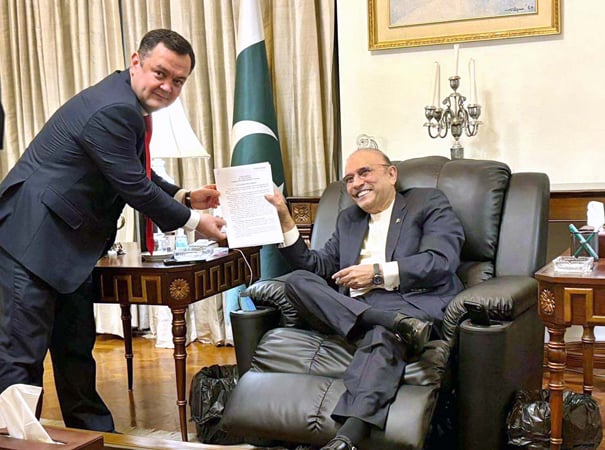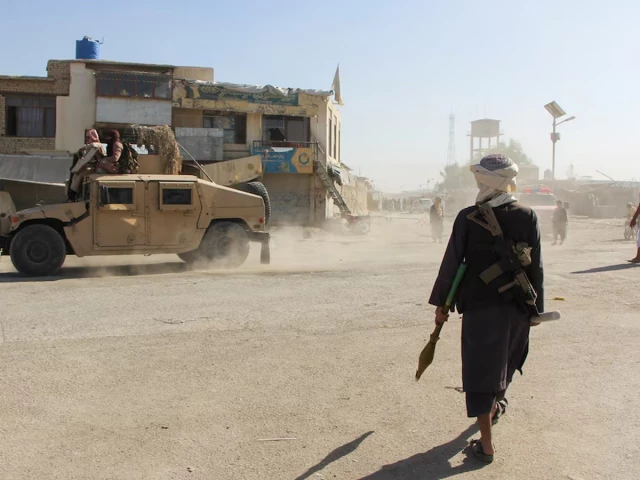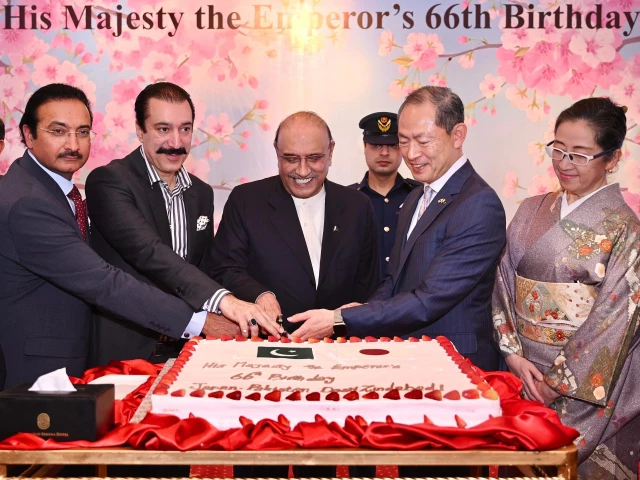

Afghan Taliban patrol near the Afghanistan-Pakistan border in Spin Boldak, Kandahar Province on October 15, 2025. Photo: Reuters
A United Nations…

Says Japan stood with Pakistan in difficult times particularly during climate-related disasters
President Zardari attends a reception marking the 66th birthday of Emperor Naruhito of Japan. Photo: APP